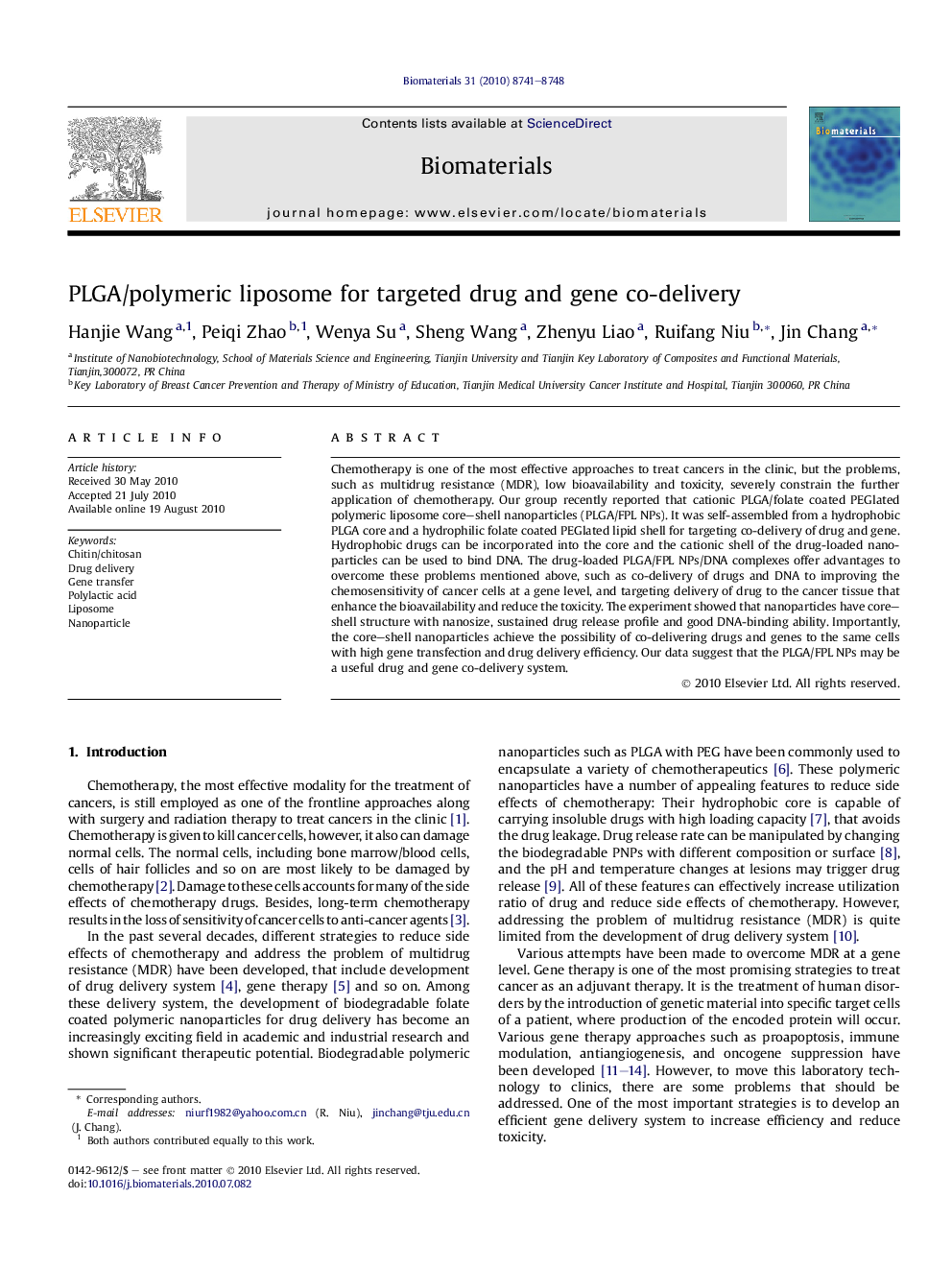| Article ID | Journal | Published Year | Pages | File Type |
|---|---|---|---|---|
| 8859 | Biomaterials | 2010 | 8 Pages |
Chemotherapy is one of the most effective approaches to treat cancers in the clinic, but the problems, such as multidrug resistance (MDR), low bioavailability and toxicity, severely constrain the further application of chemotherapy. Our group recently reported that cationic PLGA/folate coated PEGlated polymeric liposome core–shell nanoparticles (PLGA/FPL NPs). It was self-assembled from a hydrophobic PLGA core and a hydrophilic folate coated PEGlated lipid shell for targeting co-delivery of drug and gene. Hydrophobic drugs can be incorporated into the core and the cationic shell of the drug-loaded nanoparticles can be used to bind DNA. The drug-loaded PLGA/FPL NPs/DNA complexes offer advantages to overcome these problems mentioned above, such as co-delivery of drugs and DNA to improving the chemosensitivity of cancer cells at a gene level, and targeting delivery of drug to the cancer tissue that enhance the bioavailability and reduce the toxicity. The experiment showed that nanoparticles have core–shell structure with nanosize, sustained drug release profile and good DNA-binding ability. Importantly, the core–shell nanoparticles achieve the possibility of co-delivering drugs and genes to the same cells with high gene transfection and drug delivery efficiency. Our data suggest that the PLGA/FPL NPs may be a useful drug and gene co-delivery system.
